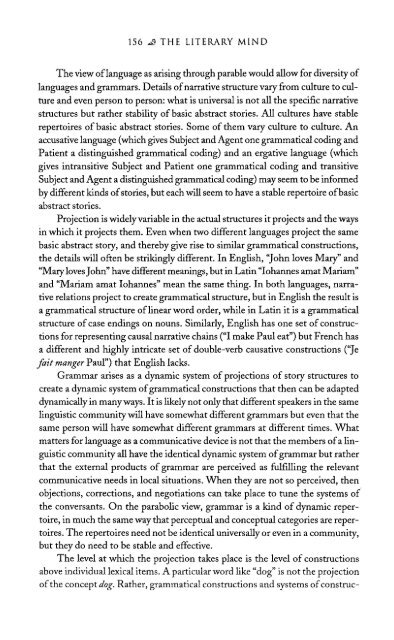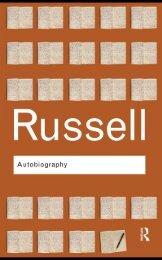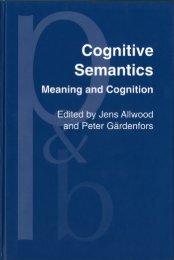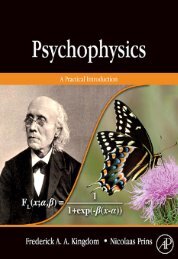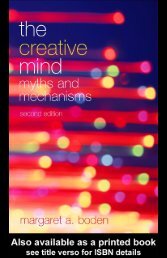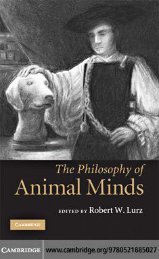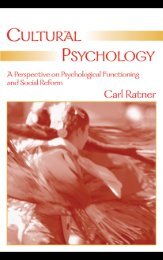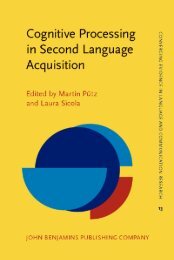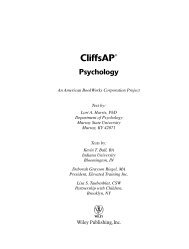The Literary Mind.pdf
The Literary Mind.pdf
The Literary Mind.pdf
Create successful ePaper yourself
Turn your PDF publications into a flip-book with our unique Google optimized e-Paper software.
156 THE LITERARY MIND<br />
<strong>The</strong> view of language as arising through parable would allow for diversity of<br />
languages and grammars. Details of narrative structure vary from culture to culture<br />
and even person to person: what is universal is not all the specific narrative<br />
structures but rather stability of basic abstract stories. All cultures have stable<br />
repertoires of basic abstract stories. Some of them vary culture to culture. An<br />
accusative language (which gives Subject and Agent one grammatical coding and<br />
Patient a distinguished grammatical coding) and an ergative language (which<br />
gives intransitive Subject and Patient one grammatical coding and transitive<br />
Subject and Agent a distinguished grammatical coding) may seem to be informed<br />
by different kinds of stories, but each will seem to have a stable repertoire of basic<br />
abstract stories.<br />
Projection is widely variable in the actual structures it projects and the ways<br />
in which it projects them. Even when two different languages project the same<br />
basic abstract story, and thereby give rise to similar grammatical constructions,<br />
the details will often be strikingly different. In English, "John loves Mary" and<br />
"Mary loves John" have different meanings, but in Latin "Johannes amat Mariam"<br />
and "Mariam amat lohannes" mean the same thing. In both languages, narrative<br />
relations project to create grammatical structure, but in English the result is<br />
a grammatical structure of linear word order, while in Latin it is a grammatical<br />
structure of case endings on nouns. Similarly, English has one set of constructions<br />
for representing causal narrative chains ("I make Paul eat") but French has<br />
a different and highly intricate set of double-verb causative constructions ("Je<br />
fait manger Paul") that English lacks.<br />
Grammar arises as a dynamic system of projections of story structures to<br />
create a dynamic system of grammatical constructions that then can be adapted<br />
dynamically in many ways. It is likely not only that different speakers in the same<br />
linguistic community will have somewhat different grammars but even that the<br />
same person will have somewhat different grammars at different times. What<br />
matters for language as a communicative device is not that the members of a linguistic<br />
community all have the identical dynamic system of grammar but rather<br />
that the external products of grammar are perceived as fulfilling the relevant<br />
communicative needs in local situations. When they are not so perceived, then<br />
objections, corrections, and negotiations can take place to tune the systems of<br />
the conversants. On the parabolic view, grammar is a kind of dynamic repertoire,<br />
in much the same way that perceptual and conceptual categories are repertoires.<br />
<strong>The</strong> repertoires need not be identical universally or even in a community,<br />
but they do need to be stable and effective.<br />
<strong>The</strong> level at which the projection takes place is the level of constructions<br />
above individual lexical items. A particular word like "dog" is not the projection<br />
of the concept dog. Rather, grammatical constructions and systems of construe-


